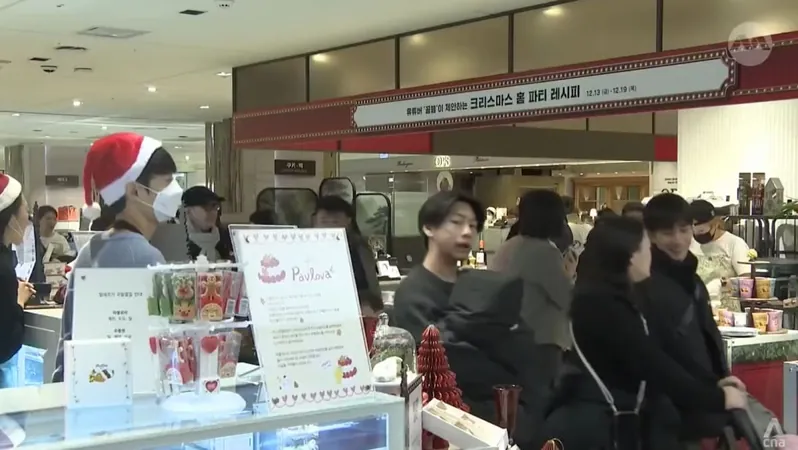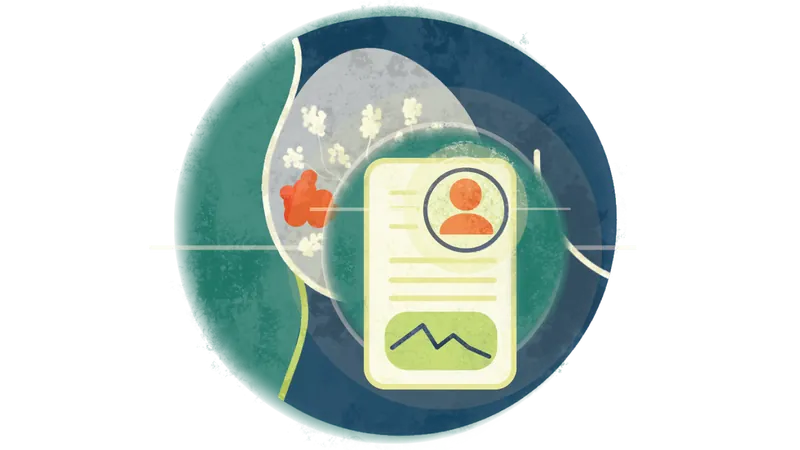
Political Turmoil in South Korea Stifles Economy and Year-End Spirits
2024-12-20
Author: John Tan
SEOUL: Political Chaos Unfolds
South Korea finds itself grappling with political chaos as protests erupted over President Yoon Suk Yeol’s brief attempt to impose martial law. For nearly two weeks, demonstrators gathered in the Yeouido financial district, home to the National Assembly, drawing attention to the country's escalating political turmoil.
Economic Consequences
Amid the protests, many South Koreans chose to avoid the streets, a choice echoed by local businesses facing dire consequences. Ju Eun-Ra, owner of Grill Jong-go-san, lamented a steep decline in sales, stating, “Since November, our sales have dropped by tens of millions of won compared to last year.” She had hoped for a strong financial comeback this month, but bookings plunged following the emergency declaration on December 3, leading to a wave of cancellations.
This downturn comes at a time when South Korea typically sees a bustling atmosphere with Christmas and New Year celebrations approaching. However, the economic forecast was already bleak, with the central bank projecting a drop in GDP growth to 2.1% for 2023, revised down from 2.2%.
In an additional setback for the nation’s economy, the South Korean won has fallen to its weakest level in 15 years. The slide is attributed to heightened risk-averse sentiments following the U.S. Federal Reserve’s cautious outlook on interest rate cuts, alongside domestic political uncertainties.
A Glimpse of Hope After Impeachment
Despite the gloom, there is a glimmer of hope as the National Assembly voted to impeach President Yoon last Saturday, calling for a collective move forward. Subsequently, protests have calmed, sparking a cautious optimism among business owners like Ju, who report that customers are beginning to rebook cancelled gatherings.
National Assembly Speaker Woo Won-shik publicly expressed his hopes for a cheerier year-end, urging citizens to resume any gatherings that were previously called off. “Small business owners, self-employed individuals, and local economies are facing severe difficulties,” he noted.
Finance Minister Choi Sang Mok echoed this sentiment by encouraging South Koreans to support local businesses. Many residents have responded to this call and are rekindling their social plans, although lingering uncertainties from the recent political landscape have cast a shadow on festivities.
A Seoul resident remarked, “It doesn’t feel like it used to, but people around me are optimistic that normalcy will return soon.” Another observer noted the subdued atmosphere brought on by the martial law, which lasted a mere six hours before being overturned by the National Assembly.
Comparative Impact of Political Unrest
A recent survey revealed that nearly half of small business owners in the food service and hospitality sectors reported financial losses linked to the ongoing political uncertainties. Yet some analysts believe that the recent instability may have less economic fallout compared to the impeachment of former President Park Geun-hye in 2016.
"We have learned that the economy tends to recover once the political situation stabilizes," remarked Professor Jin Hyun-joung from Joongang University's School of Economics. Compared to the past, he believes recovery could be swifter this time around, with consumers potentially feeling a lesser impact.
While the pessimistic growth outlook is expected to endure, Jin anticipates easing economic shocks as early as next month. He underlined that ongoing global supply chain disruptions, rising inflation, and U.S.-China trade conflicts had already begun hampering the economy before the political upheaval.
Conclusion
In summary, as South Korea faces its political crisis, there are signs of resilience among its populace, a potential recovery in the hospitality sector, and a collective hope for a brighter end to the year amidst ongoing caution.


 Brasil (PT)
Brasil (PT)
 Canada (EN)
Canada (EN)
 Chile (ES)
Chile (ES)
 España (ES)
España (ES)
 France (FR)
France (FR)
 Hong Kong (EN)
Hong Kong (EN)
 Italia (IT)
Italia (IT)
 日本 (JA)
日本 (JA)
 Magyarország (HU)
Magyarország (HU)
 Norge (NO)
Norge (NO)
 Polska (PL)
Polska (PL)
 Schweiz (DE)
Schweiz (DE)
 Singapore (EN)
Singapore (EN)
 Sverige (SV)
Sverige (SV)
 Suomi (FI)
Suomi (FI)
 Türkiye (TR)
Türkiye (TR)